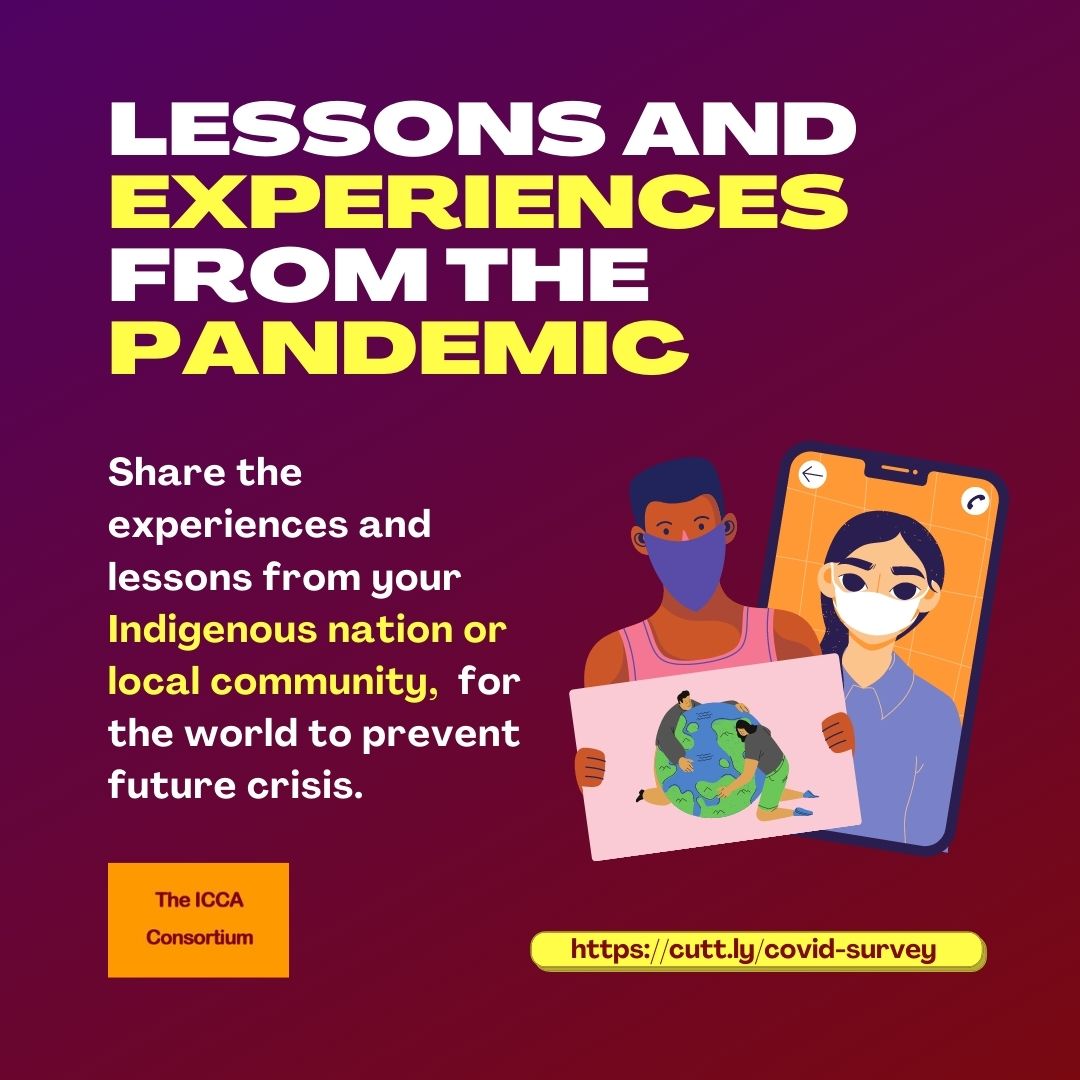First published on 09/30/2020, and last updated on 02/11/2025
The ICCA Consortium and the University of Lausanne (Switzerland) have developed a short survey to learn of experiences from territories of life.
By Thomas Niederberger, Research and Publications Coordinator of the ICCA Consortium
To take part in the survey please click this link.
What is the impact of COVID-19 on Indigenous peoples and local communities? How did the pandemic change the way they use, govern, and conserve their territories, lands, and waters? What strategies are used to counter the crisis? The ICCA Consortium and the University of Lausanne (Switzerland) have developed a short survey to learn of experiences from territories of life – or territories and areas conserved by Indigenous peoples and local communities.
The results of the survey will be published and discussed among the over 150 Member organisations of the ICCA Consortium and beyond, including an article for the Journal PARKS of the International Union for Conservation of Nature (IUCN). As in the coming months, important decisions will be taken about the global post-2020 strategy on biodiversity conservation under the framework of the Convention on Biological Diversity, it is crucial that the voices of the Indigenous peoples and community guardians of biodiversity are heard and their lessons are taken into account.
Some voices from guardian communities of territories of life:
“Young people have seen the need to turn their eyes to traditional knowledge and so have been forced to consult with traditional doctors who have retold their stories and passed on all the knowledge about medicinal plants.” “Our environment has begun to heal itself with or without our help. There are growing initiatives to reshape our economy going forward. Our society was shown to be quite vulnerable, and this has increased reflection on how we feed and sustain ourselves without the income generated by tourism.” “We experienced abuse by the authorities. Police beat up a community member badly, alleging that he did not follow the COVID-19 protocols. And the director of the Emergency Committee, which unites the different government agencies, did not allow the participation of community representatives.”
The survey consists of an online format for sharing a written story or experience, which can be described freely and in your own words. This is followed by a series of question which helps to later analyse the different experiences: What worked well? What hindered an adequate response? Who was taking important decisions? What could be learned from your experience for the prevention of future crises and so forth? A person can fill out the survey several times if he or she likes to share several relevant experiences from the same community.
The survey arises from the need for humanity in this key moment to review and learn from strategies that should be reinforced and possibly replicated in other territories, in order to advance the transformations needed for a more just and sustainable future which can guarantee the continuity of life on this planet.
If you are part of an Indigenous nation or people or of a local community living in close relation with a territory or a conserved area, or if you are working in support of Indigenous and local community organisations: Please take some time to share your experiences during the pandemic by following this link.
Important: the online survey is should be completed based on existing information and experiences. Do not visit communities and risk exposing them to COVID-19!
Please share the survey link with others who might like to respond as well. If you would like to discuss how to use this survey within your organisation or community (including analysing results for your purposes), please contact documenting at iccaconsortium dot org
